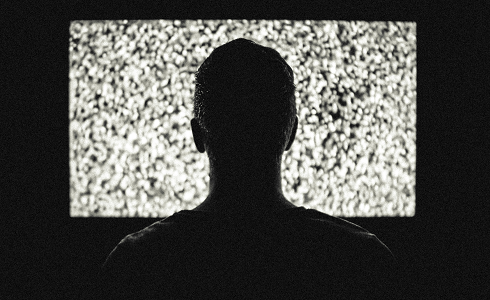Binge-Watching Television While Coping with Depression

Binge-watching television while coping with depression doesn't mix. I’ve been watching episode after episode of Shameless on Netflix this week and it’s been messing with my ability to cope with my depression. While I can easily excuse watching multiple episodes of a show in a row by calling it creative stimulation or a pleasant distraction from my mental health challenges, it’s a bad idea. Binge-watching TV stops me from moving around and accomplishing things and it works me up emotionally. I usually end up more depressed after binge-watching TV than if I have done something else. When I cope with depression, I try not to binge-watch television.
Binge-Watching TV Complicates Depression
National Public Radio (NPR) recently published an article about research regarding binge-watching and depression. Scientists are having trouble defining what classifies a binge-watch as a binge-watch. While some researchers say that two episodes in a row count as a binge, other researchers specify a certain amount of hours watched. Research merely suggests a connection between binge-watching and depression, with one survey finding that 237 out of 316 people met the definition of binge-watching and those 237 people were more likely than non-binge-watchers to demonstrate depressive behaviors.
So while science doesn't specifically pinpoint binge-watching TV as a cause of depression, I'm finding that it interrupts my healing progress with my depression. Sitting still for a long period of time is bad for me and being emotionally invested in several hours of a TV show is mentally exhausting and taxing (An Active Lifestyle Improves My Depression). I've found a few ways of managing my TV intake and avoiding the temptation to binge-watch shows.
Three Ways to Manage Binge-Watching Television for Depression
Set Time Limits on How much TV You Watch

It is so easy to binge-watch TV shows, especially while coping with depression. Episodes play automatically one after the other, instant gratification is our society's motto, and a lot of shows come out a full season at a time so we don’t even have to wait for a new episode each week.
It's crucial to stick to the time limits you set for yourself. Set boundaries before you're sucked into a show and make sure to follow through with your pre-binge plans. Use a TV timer, set the remote across the room, do whatever you need to do to hold yourself accountable.
Be Selective Regarding Which TV Shows You Watch
I'm finding it more and more important to be conscious of how TV shows affect me emotionally. Naturally, I want to watch an entire Shameless season in two days, but it’s not emotionally beneficial for me. I feel emotions deeply and I get invested in characters' lives. When they are sad, I feel sad. When there’s a tense situation, I find myself tense when I’m done watching.
It’s important to note your mental state when you’re getting ready to settle in for a show. If you’re feeling stressed about work or life, you should consider watching something that doesn’t fall into that same line of thinking and emotion. Otherwise, your mental state could continue in a cyclical pattern that doesn’t relieve you of your stress but instead intensifies it.
Replace Binge-Watching Television with New Activities
I watch various shows because I need a distraction from my depression and I like the excitement of watching an episode I haven't seen before. So instead of watching another episode for the distraction of the unknown, I'm trying to replace binge-watches with activities I never do, such as completing puzzles or researching random subjects (Unusual Depression Coping Skills).
I'm finding it difficult to avoid binge-watching shows and I have a rough time doing so, but the most important thing is that I'm trying. The most important thing about coping with depression at any point in the process is that we are trying. And as long as your working to cope, you're doing just fine.
Find Tiffanie on Twitter, Facebook, Google+, and on her personal blog.
APA Reference
Verbeke, T.
(2017, January 11). Binge-Watching Television While Coping with Depression, HealthyPlace. Retrieved
on 2026, March 5 from https://www.healthyplace.com/blogs/copingwithdepression/2017/01/binge-watching-television-and-coping-with-depression
Author: Tiffanie Verbeke
I have had multiple cycles of bipolar depression and I'm in one now. I relate to what Kacy says above because I also have extreme difficulty following any complicated plots in shows. I feel stupid when I just don't "get it" even after rewinding like she said. But I continue to search for shows and movies that do help me escape. CBT techniques are only mildly effective so I'm just now hoping that restarting my antidepressant medication along with trying to exercise somewhat regularly will eventually lift this Dark Cloud while I spend several hours of the day watching TV or playing Stratego online just to get through the day and avoid my thoughts.
I literally just bingewatched a season and a half of Shameless because I was depressed and only stopped because my parent told me to go to the store, which got me thinking. I frankly had to shut my computer and walk outside for an hour before I could focus and not want to break things. I'm setting time limits on my Netflix watching from now on because it's obviously not healthy for me.
Death, conflict, and violence fill even the commercials. I recently started experiencing anxiety and it hits most hard at night. I'm confused waiting on medical test results to exclude other physical reasons for my depression. I find myself watching tv and noticed all the negativity. I pray and try positive thinking. I listen to calming sounds to bring me out of the more severe moments. I search internet for help finding ways out of this debilitating state. Exhausting.
I used to watch TV as distraction but i could not even concentrate on anything and i would keep on rewinding until i just had to give up cos it wasn't working.
So much of the stimulation we get from TV today is unconsciously fueling our anxiety and depression. I truly is a major emotional stressor. Awareness of the habits that hurt the progress of someone is essential. Great piece.
I don't watch because I'm depressed, I watch when the noise from bipolar gets too loud, and helps me stay grounded to reality instead of the nightmares in my head. I'm not saying it's the most functional thing ever, but it sure as hell beats what my memory serves up unwanted. I agree that over watching tv shows is numbing and ultimately not great, but don't discount the benefit of escape. After a big event or upset, I find it a help to have a distraction from my thoughts.
Hi Deirdre,
That makes complete sense and I absolutely agree that the escape is beneficial. I often use TV when I'm upset or when I feel that I need to take a step back from life and all that it entails. It's a nice escape!
Tiffanie
Author, Coping with Depression Blog
I completely agree. I find myself gravitating towards television when I am depressed. I also find myself sinking into a deeper depression after binge watching television. I use it as an escape which only creates more harm to myself well being.
Thank you very much for posting this insightful blog.
I like to relax watching the holiday "fireplace" channel at this time of year. It's a form of meditation for me.
I'lll sometimes listen soft background music if I'm really stressed out and sometimes to upbeat music, both on my SMART TV, if I need to get things done, like maybe some much needed housework.
I particularly enjoy listening to the spa channel when I'm soaking in the tub. It relaxes me.
Sometimes I just watch the TV with a muted volume. It makes me feel less alone, sorta like having someone there who doesn't talk, almost like having a pet. It's comforting. Noise tends to aggravate my depression, especially the irritable kind
Hi Alternatives,
Thank you for sharing! The ways you use TV to fulfill your needs for relaxation and feeling less alone are brilliant and solid reminders that creativity works wonders in coping with depression. I'm going to have to try out the spa channel and see how it works out.
Tiffanie
Author, Coping with Depression Blog
I use television to quiet my brain so that I can pass out. I dont "go to sleep" any more. This is something that has become such an issue in my life that I started my own blog as part of my effort to put structure back into my newly retired existence.
Just started it... anyone interested in reading it:
I can testify that too much TV can lead to elevated depression levels. It leads to procrastination as well. It also leads to elevated anxiety because you basically don't get much done. I have limited my time watching TV to just a few hours a week.
Talk radio can do the same. I think a couple hours per week is fine, but I was listening for 4-5 hours per day while working. It definitely elevated paranoia, anxiety, and depression. Some can handle it and some cannot. Although I enjoyed many of the shows, I had to eliminate my listening because I was one of those that couldn't handle it.
Hi John,
I have an issue similar to your talk radio issue; mine regarding social media. The constant exposure to stressful, heartbreaking, and often disturbing information about happenings in the world riddles me with depression and anxiety. I was on social media a lot during the election, which made me noticeably more irritable, angry, and tense. I found it incredibly beneficial to limit my time on social media and when I'm seeking information on specific social justice issues or world events, I stick to news articles and only look at comments sections when I'm feeling grounded. It's a good way to manage my mental response.
Tiffanie
Author, Coping with Depression Blog